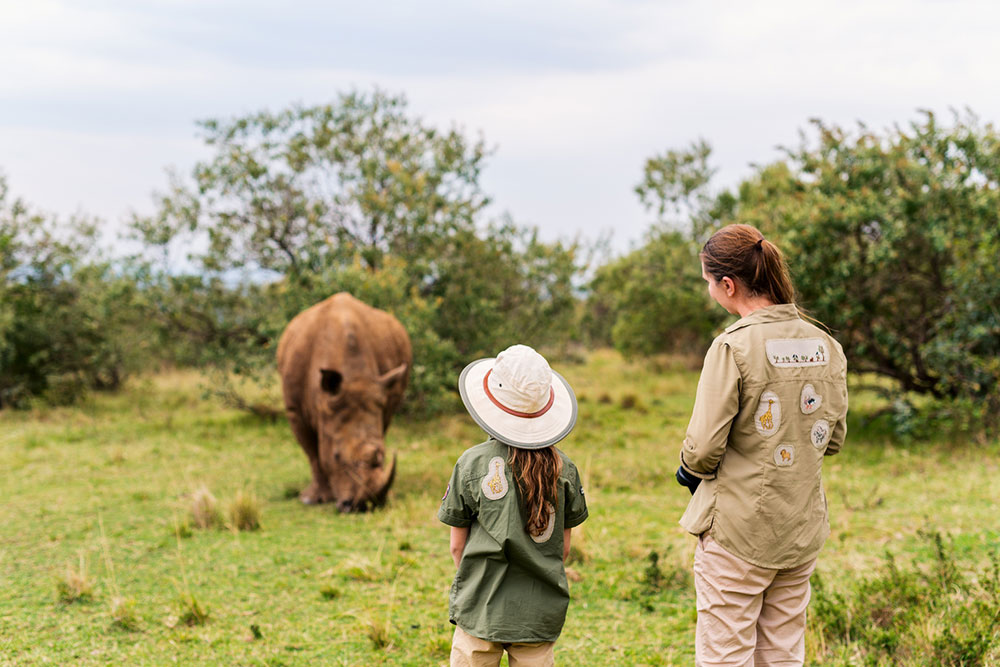8 mistakes to avoid on a safari adventure

Embarking on a safari is a unique vacation experience that offers individuals a rare opportunity to connect with wildlife. For many individuals, this may be a once-in-a-lifetime adventure; therefore, it is important to avoid certain mistakes to ensure one makes the most out of their wildlife adventure. Such oversights may lead to missing rare animal sightings or jeopardizing one’s safety when around dangerous animals. Keep reading to find out mistakes to avoid during safaris.
Don’t wear any perfume or fragrance
Putting on perfume or fragrance is desirable for any other occasion, but not for a safari. It is generally advised to avoid using anything that has a strong smell. This is because unusual and strong smells tend to make most animals nervous. In worse cases, it may also make an animal turn aggressive. Since these smells are unfamiliar, the animals will refuse to come out in the open. It will lower the chances of spotting them during the safari.
Avoid getting any food along for the safari ride
Before heading out for the safari, make sure to have a hearty meal. This way, there will be fewer chances of hunger pangs during the safari, and the need to carry food packets will be eliminated. If one takes food along, the smells may attract the animals and lead to unpleasant situations, which can even go out of control. Some safaris stop at certain spots where the staff prepares meals and beverages for the guests. But these spots are picked by the authorities beforehand after confirming that they are safe for visitors and animals.
Avoid feeding the animals
Many safari tours do not want the animals to associate the visitor vehicles with food. It is one of the reasons why all safaris have guidelines that prevent visitors from feeding the animals. Doing otherwise may put everyone’s life at risk, including the animal. Furthermore, animals that get in the habit of being fed by humans pose significant risks to the management and staff of the safari park as they can turn more aggressive or confrontational.
Never leave behind any trash
Whether hiking, trekking, road-tripping, or on a safari, one should refrain from leaving any trash behind. Many safari game reserves are rich in endangered flora and fauna. Non-biodegradable trash will cause harm to such ecosystems. Even if it is a biodegradable trash, it may harm the animals. If an animal ends up eating this trash, toxic substances will get inside their body, leading to severe health issues. Therefore, if guests carry any trash, particularly used water bottles, they must bring the same back with them instead of disposing of it somewhere in the park.
Avoid flash photography altogether
The primary objective of any safari trip is to observe wildlife in their natural habitat. To do this, visitors must avoid attempts to attract their attention in any way. All the animals in a safari park are generally used to the shapes of the guest vehicles, low human voices, and sounds coming from the vehicles, such as that of the engine. However, anything that looks or sounds highly unfamiliar to the animals can cause problems. It includes flash photography. The sound and light can quickly startle any animal, prompting them to run away. In extreme scenarios, if that animal happens to be a rhino, buffalo, or an elephant, it can make them aggressive, causing them to charge at the safari vehicle. In the case of herbivore animals, experts believe that the bright flashlight can have a blinding effect on their sensitive eyes. They may become disoriented for a while, making them easy prey.
Don’t call out to the animals
This is a mistake that must be avoided during any interaction with animals, whether it is at a zoo or during a safari. Animal sightings must always be done while remaining quiet without making loud noises. The animals in the safari park are used to the sound of the vehicles and not those of humans. Therefore, any loud noise will startle them. In most cases, the disturbance will cause them to run off to another spot. Moreover, it can increase the risk of unpredictable situations, which can be dangerous.
Avoid screaming and making fast movements
Most safari trips often involve intense moments. For instance, a lion or an elephant may get too close to the vehicle. Or a deer may decide to run behind the vehicle. In such situations, it is best to keep calm and avoid screaming and making loud noises or fast movements. Avoid making sudden movements, such as quickly getting up from the vehicle or jumping inside the vehicle. It is especially important in cases when an agitated animal charges towards the vehicle. Always trust the safari guide, who is trained to safeguard the visitors in such intense situations.
Never ignore the safari guide
Safari guides are individuals who have undergone training and are knowledgeable about all the aspects of a safari adventure. They are often well-trained in managing every situation that may transpire during the trip. Moreover, they are given training to get well-acquainted with the behavior of all the animals in the park. Therefore, individuals embarking on a safari trip should not make the mistake of ignoring the instructions given by a safari guide during the journey. Ensure one listens to the guide attentively while observing the animals so as to not miss out on the exciting aspects of the adventure.









